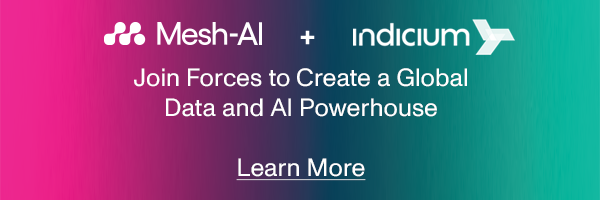


For our last Data & AI London meetup for 2023, we were delighted to host over 200 of you at 100 Liverpool Street for a session on all things AI, data and machine-learning. We were honoured to have two highly-esteemed guest speakers in attendance sharing their insights on some of the most pressing trends in technology today.
Bruno Trentini, Global Research Alliances Lead at NVIDIA gave a fascinating speech on the differences between generative and non-generative AI, and the applications of the former within chemistry, focusing on how AI is now being used in innovative ways to aid drug discovery.
Andrew Jones, Principal Engineer at GoCardless spoke to us all about data quality, and how important the ways in which we share data are.
Join our Data & AI London Meetup community!
.jpg)
Not only is AI being used more and more frequently for publishing scientific papers, it is also now providing a research platform to be able to make predictions and new discoveries in drug development.
Bruno Trentini described how such complex work requires diverse model architectures and powerful computing technologies, and NVIDIA is pioneering this technology with BioNeMo, their drug discovery cloud service.This allows businesses to customise and run generative AI models, which can also be optimised and fine-tuned to suit their individual needs, eliminating the need to build IT infrastructure.
NVIDIA is also supporting start-ups, such as Envozyne, to use AI for new life science discoveries, through its Inception network. Envozyne uses a pre-trained AI model from NVIDIA to generate novel, adaptive, high-performance proteins that can solve long-standing challenges in therapeutics and sustainability.
In order to successfully harness the power of generative AI for uses in chemistry, there are a number of integral qualities that businesses need to channel. Bruno said, “While our work is always science-driven, we cannot forget the end goals and our mission must remain customer-focused with the aim of improving humanity in mind.”
In order to achieve their goals, organisations have to be ambitious and actively pursue collaborations with other big players in the industry. A win for one is a win for all. Cultivating relationships with partners will also help grow our database, improving opportunities and helping us to find new, unique evidence.
“Generative AI is allowing us to tread new ground when it comes to the life sciences. We must work together, channel our ambition and aspire to achieve the best of the best to be able to help improve humanity.” - Bruno Trentini

GoCardless’ Andrew Jones spoke about how, when it comes to presenting data, prevention is better than the cure. This means by improving data quality at the source, and ensuring that the data we are sharing is entirely accurate in the first instance, not only can we save time and money later down the line, but we can also increase the quality of AI’s output.
In order to avoid these types of mistakes, once again, it comes down to collaboration between teams. We must bring data generators and data consumers closer together, as well as incentivising data generators to provide data that meets requirements.
Another key aspect of communication of data is the interface used. This should be owned by the data generators, so that they are responsible for ensuring that the data is communicated effectively.
Jones demonstrated his concept of data contracts - his own creation and now a common facet of the industry. A data contract defines the agreement between a data producer and consumer and can improve how organisations use data, improving its quality and reliability and therefore preventing incidents caused by low quality data.
40% of people state that data quality is the biggest technical blocker to deploying AI, and Jones’ points support this.
Data is the secret weapon being disregarded by plenty of businesses. Jones cites that while 64% of organisations know that data is to become a leading metric when it comes to competitive advantage, only 1 in 5 are using it to deliver increased revenue.
He also cited that only 32% of enterprises’ data is put to work, leaving the remaining 68% sitting idly, incurring costs and the opportunity to take value from this dark data is then lost to the businesses.
So, why are companies struggling so much with effectively utilising their data?
Most likely, the reason is that these businesses are unable to communicate and present their data in an effective way in order to reap the rewards which come with it. This brings us back to the data contracts.
“Using data contracts, as well as other effective means of communicating data, will help businesses to increase revenue, build trust with consumers and deliver quality work.” - Andrew Jones
Interested in attending our next Data & AI London Meetup? Join the community!
Read the key takeaways from our first Women in Data & AI London Meetup.
Want to build cutting-edge data and AI products and ecosystems? Join us!
